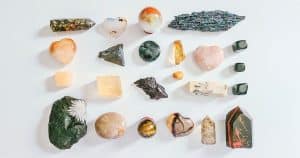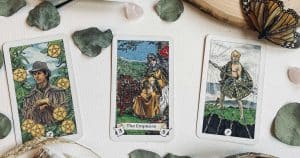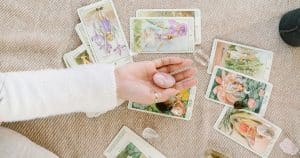
With self-help books and New Age thought entering the mainstream at a rapid pace, we often hear that we should love ourselves more. This sounds like a nice idea for most people, but if you are in the midst of angst and loss when you hear, “Love yourself more,” you may want to laugh, scream, and cry all at the same time. Why would anyone choose to not love oneself if it were that easy? Or we may think, “I love myself a lot … I went on 2 vacations last year and re-did my entire living room, kitchen, and bathroom just this month.” Or we may say, “Hey, I dumped the crappy boyfriend and got a new job … if that is not self-loving, then what is?”
Treating yourself well is part of self-love, but the idea of loving yourself is just as complex as the idea of loving another. There is no one simple way of looking at it. Everyone has a varied understanding about what constitutes “love,” be it love of self or love of someone else. Sometimes both kinds of love seem impossible and scary undertakings, yet we find ourselves seeking this emotional connection from time to time. And both kinds can appear like mirages – elusive forms of loving feelings and loving actions that look and feel great at first, but in the end leave us feeling thirsty, empty and sometimes even addicted.
Healthy romantic love and self-love are possible when an honest and compassionate relationship between our thoughts and our feelings is translated into loving actions and choices.
As a reader, I find that many of the people I speak to are going through the recent or current loss of a relationship. This seems to be the hardest time to love ourselves in a healthy way because we are feeling abandoned, rejected, scorned, and lost. Someone who was connecting us with the energy of love is suddenly gone, and that can create a great feeling of emptiness inside. Many of us lose touch with our independent connection to love when we are in a relationship with another; we merge so much that we lose sight of our unique love-light. Or maybe we never really had it in our sights to begin with and the relationship was the only source of love we felt. It is in moments like this that I encourage people to begin loving themselves more.
So, you are now probably asking, “How? How do I love myself more … what does that even mean?”
To love yourself, you must first know yourself, and then you must accept what you know about yourself in the spirit of love. Self-knowledge is a journey for life, so it is important to start with where you are.
- Begin paying attention to all your thoughts and feelings.
- Keep a journal. If you have any old journals, reread them. Write about where you were and where you are now.
- Talk to a therapist, an advisor or a friend who will listen without judgment, but who is wise enough to give you compassionate feedback and insight into yourself.
- Read self-help books that deal with the issues that trouble you and that deal with family and childhood dynamics.
Self-acceptance can sometimes feel painful and uncomfortable. There is much in our upbringing that teaches us to deny our true thoughts and feelings. By the time we are ready to know and accept ourselves, it can sometimes feel foreign, conceited, or devious to do so. Or we may discover things about ourselves that we think we should never accept. This might indicate that we need to change our choices and behaviors and take responsibility for any harm we have done, but we still need to accept that this part of ourselves existed. If we don’t, we will feel shame and guilt that will keep us from being able to love ourselves. These two feelings are the archenemies of self-love.
Self-acceptance also comes with letting go. Forgiving ourselves dissolves feelings of shame and guilt and we can then be free to love others and ourselves. The spirit of love is very forgiving, so know that you always have that available to you when you feel bad about yourself.
If we have been denying our good and our worth for a long time, then the process of actively loving ourselves might take some time to get used to, but that is okay. It is worth the wait and the work involved. Consistently relating to ourselves in an honest, accepting, and compassionate way is the key to opening up to lasting joy and authentic relationships in our lives.











